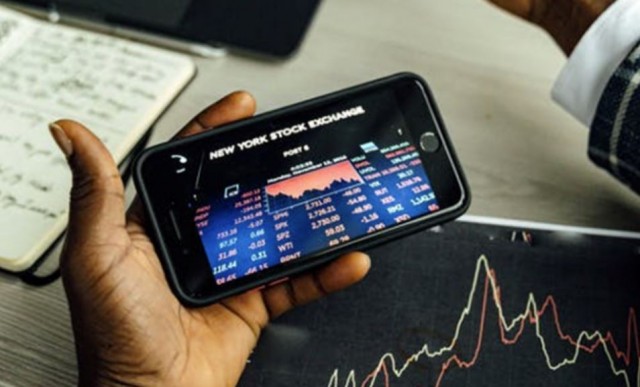CFD (contract for differences) is a contract that financially caters to any differences in settlement price between open and closing trades. With CFDs, there aren’t any physical deliveries of securities or goods. Keep reading to grasp more about contracts for differences.

CFDs Basics
Contracts for differences will enable you to trade in the price movement of derivatives and securities. Derivatives are investments from an underlying asset. As a trader, you will use CFDs to predict whether the underlying asset price will rise or fall.
If you predict that the price of an asset will escalate, you can purchase the CFD, and if you predict a decrease in the price, you can open a sell position. As a buyer, if you notice the asset’s price rising, you can sell your assets to receive the difference in price as profit.
To close a sell position, you need to buy an offsetting price. The net difference of the loss or gain will be cash-settled into your brokerage account.
CFD Features
Short and Long Trading
Using CFDs allows you to speculate on the underlying asset’s price movement in either direction. This enables you to mimic a traditional trade that will result in a profit once the asset escalates in price. You can also set a CFD position that will gain you profit as the price of the asset decreases. This is mainly regarded as going short or selling rather than going long or buying. The losses and profits will be realised once the position is closed, both with short and long trades.
However, you will have to provide some personal information. Once your information is verified, you can commence depositing funds into your account via your debit or credit card.
Learning the ropes of CFD trading is advisable by starting with a demo account. You can receive up to £10,000 in virtual funds to practice with. Once you gain sufficient confidence, you can move to your live account, where you will be trading with your funds.
Have a Trading Plan
A trading plan is vital as it will guide you in maximizing your profits while trading. You can develop a trading plan based on the available capital, your trading motivation, strategies, time commitment, risk tolerance, and goals.
Choose a Market
You will find hundreds of financial markets in your brokerage account, ranging from indices to forex pairs, shares, bonds, commodities, and more. With the numerous financial markets available, you should conduct sufficient research on the best market to settle that will rhyme with your trading plan. For instance, after conducting your research, you may wish to trade the difference in exchange rates between GBP/USD in the forex markets.
Decide Whether to Buy or Sell
Once you have settled on a market, you must decide to buy or sell the CFD. The CFD price entirely depends on the price of the underlying asset. The selling price is the price that is quoted on the trading ticket, while the second price is known as the offer. The difference between the selling price and the offer is the spread. As earlier mentioned, purchase a CFD if you predict the price will hike and sell it if you predict the price will decline.
Adding or Stopping Limit Orders
After you have decided your trade size and before you place your trade, contemplate the risk management strategies you have in place. You can place a limit order, an instruction that closes a trade once the price is higher than the current market level. It can be helpful when you want to secure good profits. You may also have the option of adding a “stop loss” which closes a position when it reaches a set price to limit potential losses.
Monitoring the Trade
You must closely monitor your trades to determine when you can buy or sell. You can also track the market prices to successfully place a limit order.
Closing the Trade
You can close the trade once you are satisfied with monitoring your trades. This can be done by pressing the close position button at the window. Once you close the trade, your profit and losses will be complied with and reflected in your account. If you have made a profit, the amount will be added to your account, and in case of a loss, some money will be deducted from your account.
CFD Strategies
Trend Trading
Involves utilizing financial indicators to know a trend direction. Once you get the trend direction, you can follow the wave until you realize your profits or until the trend direction changes.
Trading Breakouts
If you are a beginner in CFD trading, this can be an effective strategy. The trading breakouts strategy identifies any breakout signals that could indicate a good time to enter a position. For it to be effective, you need to identify the critical price by constantly monitoring the markets.
News Trading
Here, you must pay attention to the market’s microeconomic data and any news announcements that could either negatively or positively affect the markets, as some announcements will have significant impacts on the market prices. While using this strategy, you must follow the next financial moves closely taken by different companies.
What to Checkout When Choosing a CFD Broker
Demo Account
CFD trading can be challenging, and there is potential to experience heavy losses. Consider choosing a brokerage company that offers a demo account to enable you to polish your skills. With a demo account, you can also decide which is the best strategy to use.
Risk Management Equipment
A good trading platform should provide you with information on managing your risks. The platform should have a “stop-loss” feature, aimed at minimising your losses.
Leverage
Your CFD trading platform should expose you to a wide array of markets with minimal capital.
Fees
The brokerage fee varies from one platform to another.
Final Thought
As with any other investments, ensure you research widely on the markets before you commence CFD trading. To build up your confidence and experience, use the demo account before trading on your live account.
*Spread bets and CFDs are complex instruments and come with a high risk of losing money rapidly due to leverage. The vast majority of retail client accounts lose money when spread betting and/or trading CFDs. You should consider whether you understand how spread bets and CFDs work and whether you can afford to take the high risk of losing your money.

 Hot Features
Hot Features










